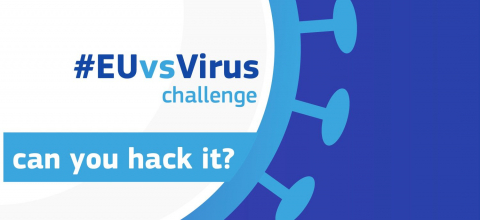Our team, along with the other winners, have been invited to a Matchathon online event 22 to 25 May on the new European Innovation Council (EIC) COVID Platform. The purpose of the event is to help these teams match with corporates, investors, accelerators, venture capitalists, etc. around the world to put their innovative solutions into production and save lives.
The team from MUW and UW has been working on combining mathematical predictive machine learning models to research how SARSCoV-2 will mutate, and which of its genes will be less likely to mutate. The “COVID Genomics” project will be a tool, based in a website. Using this tool, any laboratory working on a COVID-19 vaccine will be able to check chances of viruses mutation in given gene and even part of gene. It will greatly increase the chance of constructing successful vaccine therapy.
The EUvsVirus Hackathon, led by the European Innovation Council, took place on 24, 25 and 26 April and was attended by more than 20,900 participants from across the EU and beyond. The main goal of the Hackathon was to connect civil society, innovators, partners and buyers across Europe to develop innovative solutions to coronavirus. The Hackathon addressed approximately 20 imminent coronavirus challenges, to be quickly developed and deployed across the EU Single Market. Over 2,150 solutions were submitted in areas including health and life (898), business continuity (381), remote working and education (270), social and political cohesion (452), digital finance (75) and other challenges (83). Winners were selected according to impact potential (20%), scalability (20%), novelty/innovation (20%), prototype completion (20%), business plan (20%).
